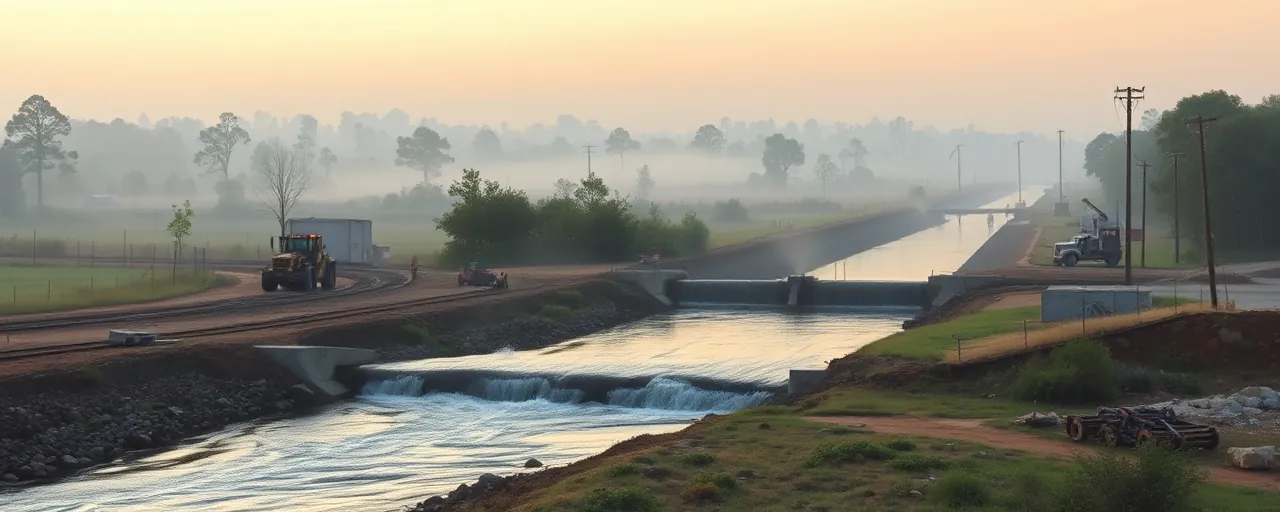A Long-Overdue Reckoning
The Department of Justice just dropped a bombshell that’s got bureaucrats scrambling. With a single stroke, it’s closing the book on a so-called environmental justice case in Lowndes County, Alabama, tied to a settlement cooked up by the last administration. This isn’t just a policy tweak; it’s a seismic shift toward sanity in how we govern. For too long, federal agencies have been tangled in initiatives that sound noble but end up wasting resources and dividing communities. The DOJ’s move signals a return to what matters: serving every American, not just those cherry-picked by ideological crusaders.
This decision flows directly from President Trump’s Executive Order 14151, a bold directive that demands federal agencies ditch Diversity, Equity, and Inclusion programs that have ballooned into costly distractions. Environmental justice, as it’s been peddled, often cloaks itself in moral superiority while funneling taxpayer dollars into projects that prioritize optics over outcomes. The DOJ, led by Assistant Attorney General Harmeet K. Dhillon, is calling it like it is: Americans deserve a government that respects their hard-earned money and focuses on real solutions, not trendy buzzwords.
Unmasking the Environmental Justice Myth
Let’s talk straight about what environmental justice has become. Under the previous administration, it morphed into a catch-all for pushing DEI agendas, often at the expense of practical governance. The Lowndes County case, for instance, was less about cleaning up environmental hazards and more about signaling virtue to a select audience. Research from the past decade shows these programs, like the much-hyped Justice40 initiative, frequently funneled funds to advocacy groups aligned with specific political goals, leaving broader community needs on the back burner. That’s not justice; it’s favoritism dressed up as progress.
Advocates for these initiatives claim they’re vital for protecting marginalized communities from pollution. Fair enough, nobody wants dirty water or toxic air. But the data tells a different story. Federal spending on environmental justice has skyrocketed since the 1990s, yet measurable improvements in public health outcomes for targeted areas remain spotty at best. Meanwhile, the EPA’s own reports have shown that DEI-driven policies sometimes sidelined practical fixes, like upgrading outdated infrastructure, in favor of flashy community grants. The DOJ’s decision to pull the plug on Lowndes County isn’t a step backward; it’s a refusal to keep pouring money into a broken system.
The Pushback and Why It Falls Flat
Predictably, the usual suspects are crying foul. Advocacy groups and certain municipalities have rushed to court, arguing that scrapping environmental justice settlements violates some sacred trust. They point to lawsuits challenging the freeze on billions in congressionally approved funds, claiming it’s a betrayal of vulnerable communities. But let’s cut through the noise. These legal stunts often lean on procedural nitpicking rather than hard evidence that the terminated programs were delivering. Historical cases, like the $5 billion Anadarko Petroleum settlement, show that massive payouts don’t always translate to cleaner communities; they often get bogged down in red tape or siphoned off to unrelated causes.
The critics’ real gripe isn’t about results; it’s about losing control of the narrative. For years, they’ve framed environmental justice as untouchable, a moral high ground nobody can question. Yet when you dig into the numbers, the story unravels. Federal agencies under prior leadership admitted that DEI mandates sometimes skewed priorities, diverting resources from universal problems like lead contamination to niche projects that checked ideological boxes. The DOJ’s move isn’t heartless; it’s a demand for accountability, a call to focus on what works for everyone, not just what plays well in certain circles.
A New Path Forward
Here’s where the rubber meets the road. By shutting down this environmental justice deal, the DOJ isn’t abandoning communities; it’s paving the way for governance that doesn’t pick winners and losers based on arbitrary criteria. President Trump’s order makes it clear: federal agencies exist to serve all Americans, not to prop up programs that thrive on division. This shift builds on a broader effort to streamline civil rights enforcement, cutting through decades of bureaucratic bloat. Back in the 1990s, Executive Order 12898 set the stage for environmental justice, but it’s been twisted into something far removed from its original intent. Today’s DOJ is hitting reset.
What does this mean for places like Lowndes County? It means resources can now flow to projects that deliver tangible results, like fixing sewage systems or ensuring clean drinking water, without the DEI baggage. States and private companies are already stepping up, proving that environmental progress doesn’t need a federal mandate wrapped in ideology. The focus is shifting to merit-based solutions, where communities get help based on need, not a checklist of social justice buzzwords. That’s a vision worth rallying behind.
Standing Firm for Fairness
The DOJ’s decision marks a turning point, a rejection of the idea that good intentions justify bad policy. It’s a reminder that government isn’t here to cater to loud voices or trendy causes; it’s here to deliver results for every citizen. By closing the Lowndes County case and others like it, the administration is sending a message: fairness doesn’t come from carving out special treatment for some. It comes from building systems that lift everyone up, no exceptions. That’s the kind of leadership that cuts through the fog of polarization and gets things done.
As the dust settles, one thing is clear. The fight over environmental justice isn’t about the environment alone; it’s about whether we govern with clarity or get lost in ideological quicksand. The DOJ has chosen the former, and it’s a choice that resonates with Americans tired of seeing their tax dollars squandered. This isn’t the end of the story, but it’s a hell of a start. Let’s keep pushing for a government that works for all of us, not just the ones who shout the loudest.
